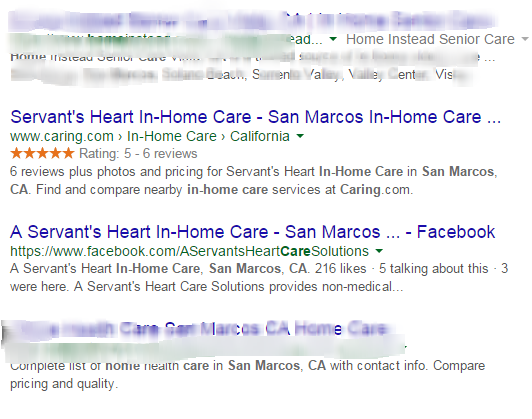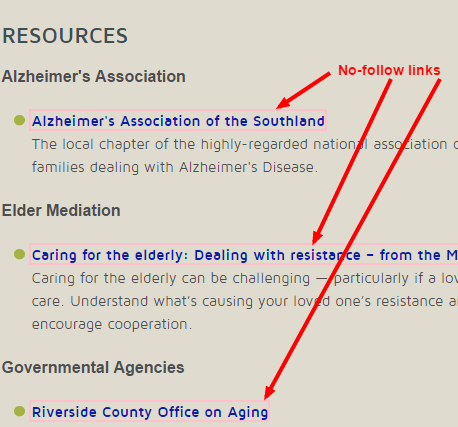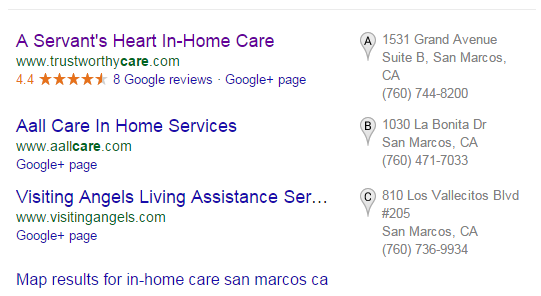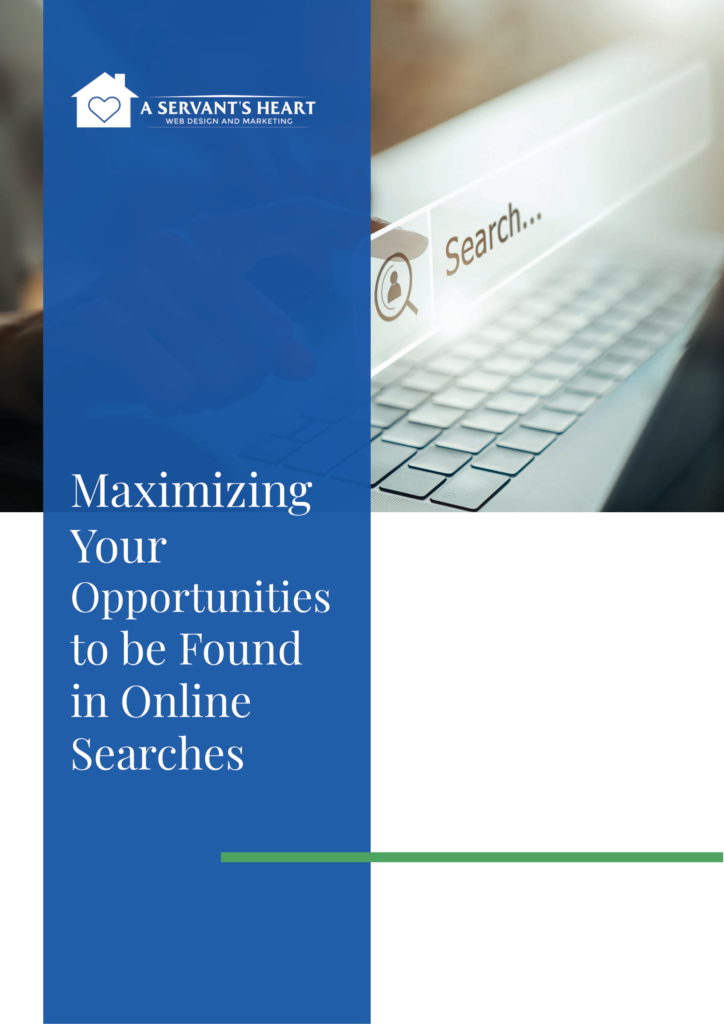
There are many reasons why you might want your elder care business listed in online directories. There are also a lot of misunderstandings about how those directory listings work, how much they cost, and whether they do or do not provide any business benefit, for SEO or in any other way.
There are literally thousands of online directories out there. In this article we’ll take a look at some of the factors to consider and by the time we’re finished we’ll present our assessment, that there are only a small number of directories that you would benefit from and a large number that will do you little or no good but still cost you money.
What Are Elder Care Online Directories
For this articles, we’re going to say that an elder care online directory is a website that provides links to other websites that are related to elder care or similar topics. There are some online directories that are obviously elder care directories, such as caring.com. There are other websites that meet our working definition, though, which are not obviously directories at first glance, such as search engines like Google and membership lists on websites for chambers of commerce, industry associations and others.
When You Stop Paying, They Remove Your Listing
 This is the first, most important thing to remember about these directories: if you ever stop paying to be in them, they remove your company listing. All the money you paid to them is gone and you are left with nothing.
This is the first, most important thing to remember about these directories: if you ever stop paying to be in them, they remove your company listing. All the money you paid to them is gone and you are left with nothing.
If you’re thinking about paying to be in online elder care directories before you have a solid, up-to-date website and a working, ongoing SEO campaign, you’re doing it wrong. Your website and the ongoing investment you put into it to build SEO will never be lost. You will have an asset that you invested in, paid for, and own. That’s not true for online directory listings.
And also remember: the few elder care online directories that are worth considering all provide multiple elder care business benefits. The rest do not.
Possible Elder Care Business Benefits From Online Directories
There are four main potential benefits that you might receive from having your business to listed in an online directory:
- New Customers Benefit – New customers for your business
- Lead Generation – More new customers for your business
- Reviews SEO Benefit – Helping your business appear relatively more attractive than others in search results
- Backlink SEO Benefit – Helping your website show up better in search results
New Elder Care Customers Benefit
In this benefit, new customers learn about a specific online directory and then use the directory to find service providers in a specific geographic area, and in that process, find your company.
Examples of this might be a search on caring.com for home care companies that provide service in San Marcos, California, using the online directory’s online search form. If they do so, find your company listed, and call you to ask about your services, prices and more, that’s an example of the “New Customers” benefit.
Not all online directories are likely to actually be a source of new customers for your business. Since there are thousands of online directories on the web, new customers will not know about all of them. Somehow you need to be able to speculate accurately about which online directories are likely to be the one or two that potential customers will use.
New customers may be likely to find online directories by using Google to literally search for “elder care directories”. They might also very search Google for less specific search terms such as “home care” or “in home senior caregivers”, only to find that Google presents quite a few online directories as well as individual companies in the search engine results pages (“SERPs”).
Lead Generation Benefit
Lead generation means that the directory not only lists you, it actually helps the customer contact you, or offers to contact you on their behalf.
There are a number of online directories that claim to offer this business benefit. Many fail to deliver, in my experience. The failures include EldercareLinkOnline.com, SeniorAdvisor.com and others. Those companies charge for leads regardless of the outcome and send the leads out to many different providers.
There’s one online directory which, in my experience, works well as a lead generator. That one is Caring.com. They charge an annual fee for inclusion in their directory and we receive many, many leads from them for my in-home care company. The conversion rate is lower than for the leads we find organically but at least we’re not paying for the ones that don’t convert, and not for the ones that do (except as part of the annual fee).
Reviews SEO Benefit
The web is moving rapidly to a consumer-driven shopping world, and customer reviews often can have a significant effect on buying decisions, both positive and negative. Google has its own reviews system and it publishes its own review summaries next to companies that it lists in the “local pack” results in SERPs. It also includes review summaries for Yelp citations for companies as well as for Caring.com citations.
When searchers are presented with a long list of companies that they know nothing about, they are likely to be drawn to the ones that are displayed with the most favorable overall review profiles.
Once again, Caring.com really stands out in this category. They aggressively help listed companies build review profiles by coaching the listed companies on how to garner positive reviews. See the screen shot below for an example of this.

Caring.com will even call customers on behalf of listed companies, if the listed companies provide them with contact info for current and past (satisfied) clients. Of course, if you accept that help from them, you’ll want to make sure in advance that those clients aren’t surprised to hear from the Caring.com reviews staff.
Backlink SEO Benefit
If the online directory creates one or more clickable hyperlinks from its website back to your website, those links are called “backlinks”. Backlinks provide SEO benefit to your website because they are signals to Google that the linking sites are endorsing your website as a worthwhile source of information. In general, the more high-quality backlinks from relevant websites that your website has, the better your website will rank in the SERPs.
The degree to which those backlinks make a difference will depend on a lot of different factors, though. The links need to be:
- On directory static pages.
- Not on directory query results pages.
- Not be marked with something called a noFollow tag.
Static Links
Static links are those which are always available on a page that continuously exists on a website. This matters because Google’s web indexing “bots” have to be able to “spider” (i.e., “travel along”) the menu and link navigation pathways on the directory website and find a page at the end of that journey, or along the way, that has the backlink from the directory site to your website. If there is no static page, there is no backlink and thereby, no backlink SEO benefit.
Query Result Links
Not all directory sites have static pages with backlinks to the companies listed on those directory sites. Instead, they may present the listed companies’ information, including links to the listed companies’ websites, only in response to users’ search queries, searches conducted using the online search forms on those directory sites.
In those cases, the directories are choosing to only create SERPs in response to user queries, and those SERPs are sent to the users’ browsers, and then they are not saved as static pages on the directory site.
Those directory sites have zero SEO backlink benefit for the companies listed on them.
How can you tell when a directory site is only presenting Query Result links?
- One way is to search Google with a search string like this, for a site where you know your own website should be listed:site:directorysiteaddress.com yourwebsiteaddress.comIn the example above, change “directorysiteaddress.com” to the URL for the directory site, and “yourwebsiteaddress.com” for the URL for your own website. The command “site:” tells Google to search its index for any pages on “directorysiteaddress.com” that contain the string “yourwebsiteaddress.com.
- In the resulting Google SERP, look for whether or not it presents any results. If it does not, then that directory site is not providing any static links to your website. It may be providing query results links, but as you can see, if it is, those are not ending up being indexed in Google.
- If, on the other hand, the resulting Google SERP does contain results, click on them. If they take you to a page on the directory where your own website’s address is shown, then those are valuable static links, and not worthless query result links.
- For example, this Google search: site:caring.com trustworthycare.com does produce resulting links to pages with links to trustworthycare.com, my own in-home care company. I pay a fee annually to Caring.com in order to be listed there.
- Another example: site:cahsah.org trustworthycare.com does produce resulting links from the website for CAHSAH, the in home care industry association in California, to my in-home care company.
- Thus, you might expect that my company would be located using a search like this one: site:caremanager.org trustworthycare.com. However, that turns out to be not true. Why is that? Because the association’s website does not list the websites or other contact info for regular members on static pages. Some members’ websites on that site are listed on static pages, but only if they’re on the board, “fellows” of the association, corporate sponsors (like our own elder care SEO company, A Servant’s Heart) and a few others.
noFollow Links
Even if you are fortunate enough to have a backlink to your site from a static page on an online directory, there is one more thing that you need to check. The owner of any website can choose to mark one or more links from their site to other sites as having something called a “noFollow” tag (actually, it’s something named something more technically complicated than “tag”, but “tag” works for our purposes here.
If the backlink from an online directory to your website has the noFollow tag, that backlink provides much, much lower SEO benefit to your website. Actually, probably no benefit at all.
The noFollow tag was invented by Google as a way for website owners to flag a link from their site to another site as “not to be trusted” or “not to have any particular signal of authority, trust or recommendation” for that other site. Google accordingly does not ascribe very much importance to that backlink as any sort of a signal of the site having any authority or trust.
How on earth can you test for that? Well, one approach is to install an “extension” to your favorite web browser so that it will tell you which links on the page that you’re currently viewing are “noFollow” links. The one that I use most of the time is called the “META SEO Inspector” extension for Chrome, and you can get it for Chrome at this URL: http://goo.gl/JYDG68. In the screen shot below, it has marked the noFollow links by outlining them in pink boxes.

If you don’t want to mess with browser extensions, you can just open the online directory page where they show a backlink to your website, and then “view the source” for that page, using the tools in your particular browser. In Chrome, you can simply simply press Ctrl-U and the source for the page will open in a new tab. Then search (using Ctrl-F in Chrome) for this string: nofollow. (Without the period)
If you find “noFollow” near the backlink to your website in the source, the backlink is probably a “noFollow link”.
Directories That DO Benefit Your Elder Care SEO
There are only a handful of online directories that are likely to provide very much benefit for your elder care business. There are hundreds more that provide little or no benefit at all because either they won’t be found by most new customers, they don’t provide backlinks with SEO benefit, or they are for the wrong type of elder care, a type that is directly competitive with the type that you provide.
There are a small number of elder care specific online directories that you probably should consider, though. Here are the ones that I suggest, and there may well be others.
- Caring.Com
- National or State Professional Association Websites’ Member Lists, e.g., CAHSH
- However, if you pay to join your association for backlink benefits alone, make sure you check first to find out whether the member backlinks that they provide are static page backlinks that are not marked noFollow.
- Social Media Business Directories
- Google+ (this one does provide a valuable link – a very valuable one)
- Yelp (however, this one is a noFollow link)
- Facebook (however, this one is a noFollow link)
If you know of other online directories that are specifically for elder care companies, let me know and I’ll check them out for possible addition to the list.
Summary
Elder care online directories can be an effective part of an overall elder care seo strategy. They are far from being the most important part, but they can provide business and SEO benefit when chosen carefully and used correctly. And most of all, remember that they only work, and only provide benefit and value, so long as you are paying for them. As soon as you stop paying, they will drop your listing and you will lose all the business and SEO benefits almost immediately.
Photo by dfulmer 
Photo by stevendepolo 



